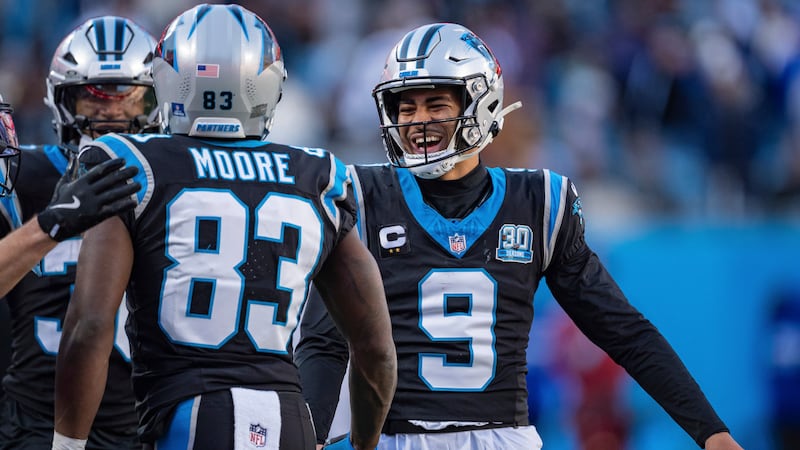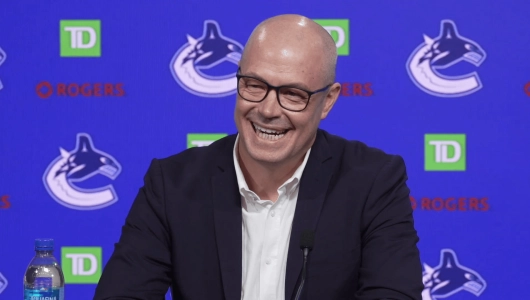Vancouver Canucks Facing Harsh Reality as Brock Boeser Likely to Depart in Free Agency
The Vancouver Canucks may soon be saying goodbye to one of their long-standing core players, as new reports suggest that forward Brock Boeser is unlikely to return for the 2025–26 NHL season. With the opening of the free agency period just around the corner, it appears increasingly doubtful that the Canucks will be able to reach an agreement with Boeser before the July 1 deadline.
Boeser, who is set to become an unrestricted free agent on Canada Day at 9 a.m. PT, has just one month remaining until he can officially test the open market. And according to NHL insider David Pagnotta of The Fourth Period, the 28-year-old winger is now considered a “longshot” to remain in Vancouver. A team source reportedly told Pagnotta that Boeser is preparing to move on and that he’ll be one of the more in-demand players available this offseason.
“The focus in Vancouver seems to be centred around adding more offence up front and replacing Brock Boeser, who will become an unrestricted free agent this summer,” Pagnotta stated in his report. He added that Boeser is “prepared to move on to the next chapter of his career,” noting that there will be no shortage of suitors once free agency opens.
Boeser has been a fixture in the Canucks lineup since being drafted 23rd overall in 2015. Over the last nine seasons, the Minnesota native developed into a reliable offensive contributor and a fan favorite, earning praise for his scoring touch and ability to come through in key moments. His exit would create a sizable void in Vancouver’s top-six forward group—a gap that won’t be easy to fill.
In 554 games wearing a Canucks jersey, Boeser has racked up 434 points, including 204 goals and 230 assists. He’s also registered 142 penalty minutes and holds a career plus-minus rating of minus-33. While he’s had some ups and downs, especially with injuries over the years, there’s no denying his offensive ability and the chemistry he’s built with other key players on the team.
Back in April, Boeser hinted that his time in Vancouver might be coming to a close. Speaking candidly to reporters, he acknowledged that negotiations with the team had stalled and suggested that he had likely played his final game as a Canuck. The major sticking point in negotiations appears to be contract term: Boeser is reportedly seeking a deal longer than five years, while the Canucks may be hesitant to commit to such a lengthy contract given the club’s salary cap constraints and shifting priorities.
At a fan engagement event in mid-May, General Manager Patrik Allvin addressed Boeser’s contract situation, saying the team was still open to finding common ground and hopeful that a deal could be struck. However, Allvin’s remarks did little to shift the narrative. With just a few weeks left until Boeser can officially field offers from other teams, time is not on Vancouver’s side.
If Boeser does hit the open market, he is expected to generate widespread interest. Several teams have already been rumored as potential landing spots. Among them are his hometown Minnesota Wild, who may look to bring the winger closer to home. The Carolina Hurricanes, Los Angeles Kings, and Toronto Maple Leafs are also considered possibilities, with the Leafs’ involvement depending on the outcome of their own high-profile negotiations with Mitch Marner, who is also approaching free agency.
Losing Boeser would mark the end of an era for Vancouver. Drafted during a period when the franchise was beginning to rebuild, he represented hope and promise for a new generation of Canucks hockey. He delivered on much of that promise, particularly in his earlier seasons, and formed part of a core group that helped return the team to playoff contention. Even when injuries hampered his consistency, his skill and leadership remained valued assets in the dressing room.
For the Canucks, the task now becomes finding a way to move forward if Boeser does indeed walk. Replacing a player of his caliber on the open market won’t come cheap. Internally, the team may look to younger players or prospects to step up, but that’s no guarantee. More likely, the Canucks will explore trade options or lower-tier free agents in an effort to replace the offense Boeser brought to the lineup.
It’s also worth considering the larger context of Vancouver’s offseason strategy. The Canucks are under pressure to reshape their roster after falling short of expectations in 2024–25. Missing the playoffs has only intensified the urgency to make impactful moves this summer. While there’s always a chance Boeser circles back if his market doesn’t develop as expected, the likelihood of that scenario appears slim.
David Pagnotta’s report makes it clear that Boeser is preparing to embrace a new challenge—and that Vancouver is already working on contingency plans. For fans, it’s a bittersweet moment. While Boeser’s departure would open up cap space and provide flexibility to address other needs, it would also close the book on a chapter that, while not without flaws, brought excitement and moments of brilliance to Rogers Arena.
Ultimately, unless something changes dramatically in the coming days, Boeser will become one of the most coveted names on the market when free agency opens. And for the Canucks, it will mark a turning point in their effort to retool and reposition themselves for future success.
July 1st is fast approaching—and with it, a decision that could reshape Vancouver’s roster for years to come.



